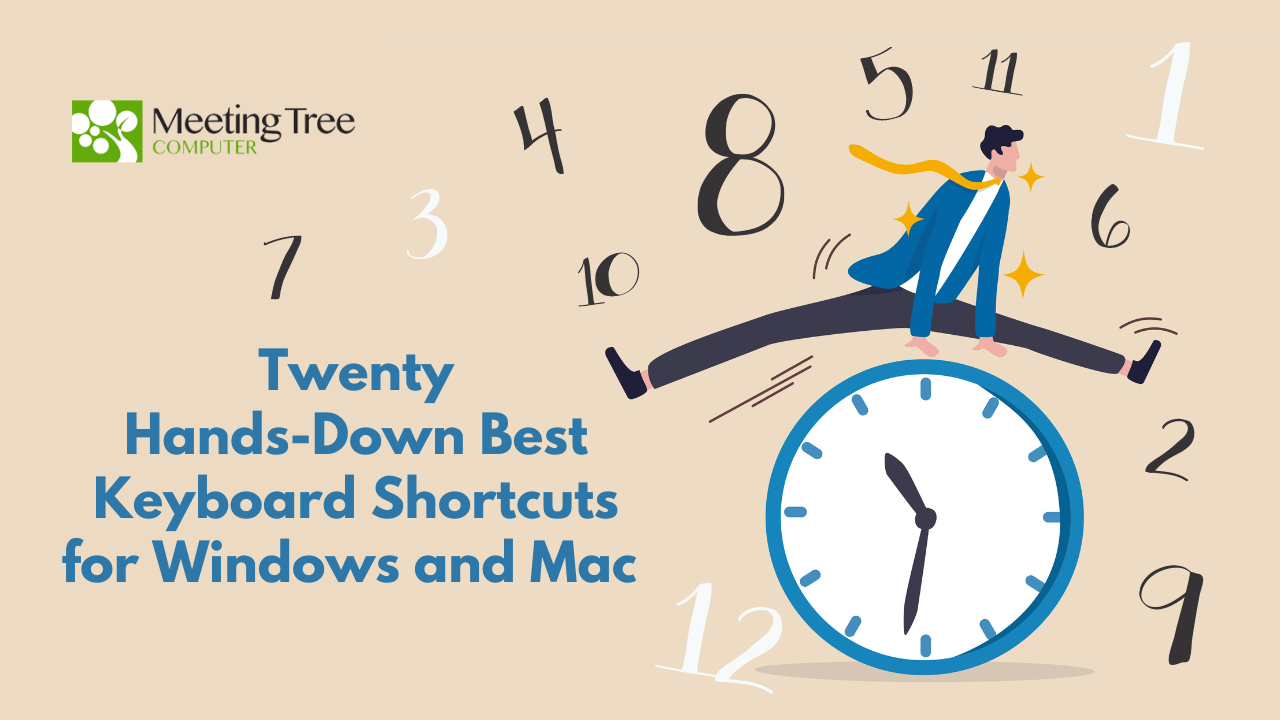Are you tired of wasting precious seconds clicking around your computer like a lab rat in a maze? Do you long for the days when humans ruled over technology with a firm hand and a quick keystroke? Well, my friend, it’s time to take back control of your digital life with the power of keyboard shortcuts! Not only will you impress your coworkers with your lightning-fast productivity, but you’ll also feel like a wizard casting spells on your computer. So, grab your cloak and wand (or just your keyboard), and let’s dive into the magical world of keyboard shortcuts!
Keyboard shortcuts are an efficient way to save time and increase productivity.
Here are 10 of the best keyboard shortcuts for Windows and Mac that will make your work easier:
Copy (Ctrl+C or Command+C): Copy the selected text, image, or files to the clipboard.
Cut (Ctrl+X or Command+X): Cut the selected text, image, or files and move them to the clipboard.
Paste (Ctrl+V or Command+V): Paste the contents of the clipboard at the current cursor location.
Undo (Ctrl+Z or Command+Z): Undo the last action taken.
Redo (Ctrl+Y or Command+Shift+Z): Redo the last action that was undone.
Select all (Ctrl+A or Command+A): Select all items in the current window.
Save (Ctrl+S or Command+S): Save the current document.
Find (Ctrl+F or Command+F): Find a word or phrase in the current document or webpage.
Open a new tab (Ctrl+T or Command+T): Open a new tab in your web browser.
Print (Ctrl+P or Command+P): Print the current document or webpage.
Close current window (Alt+F4 or Command+W): Close the current window or application.
Switch between open windows (Alt+Tab or Command+Tab): Quickly switch between open windows or applications.
Zoom in (Ctrl+Plus or Command+Plus): Zoom in on the current document or webpage.
Zoom out (Ctrl+Minus or Command+Minus): Zoom out on the current document or webpage.
Minimize window (Windows key+Down Arrow or Command+M): Minimize the current window.
Maximize window (Windows key+Up Arrow or Command+F): Maximize the current window.
Open file explorer (Windows key+E or Command+E): Open the file explorer window.
Open settings (Windows key+I or Command+,): Open the settings window.
Open task manager (Ctrl+Shift+Esc or Command+Option+Esc): Open the task manager window.
Take a screenshot (Print Screen or Command+Shift+3): Capture a screenshot of the current screen.
These keyboard shortcuts will save you time and increase productivity when working on your Windows or Mac computer. Try them out and see how much faster and more efficient you can be!
Are You Ready To Go Rogue?
After mastering the essential keyboard shortcuts, you may want to create your own custom keyboard shortcuts to automate repetitive tasks and streamline your workflow with AutoHotkey.
AutoHotkey is a free, open-source programming language for Windows that lets you create your own keyboard shortcuts and macros.
Here’s how it works:
First, download and install AutoHotkey from the official website.
Then, Right-click on the desktop and select New > AutoHotkey Script to create a new script file.
Open the script file in a text editor and add the following code:
This code creates a custom keyboard shortcut that opens Notepad when you press the Windows key + Z.

Save the script file and double-click on it to run it.
Try out your new keyboard shortcut by pressing the Windows key + Z.
AutoHotkey supports many commands and functions, so you can customize your keyboard shortcuts and macros to do almost anything. With a bit of practice, you can create a suite of custom shortcuts that save you time and effort on a daily basis.
Now that you’ve learned the secrets of keyboard shortcuts, you can go forth into the digital realm with the confidence of a medieval knight charging into battle. No more shall you be held captive by the tyranny of mouse clicks and touchpads! With your trusty keyboard at your fingertips, you can conquer any task with ease and efficiency. So go forth, young padawan, and may the shortcuts be with you! (cue dramatic music)
Note that creating custom keyboard shortcuts with AutoHotkey requires some technical know-how, so be sure to read the documentation and start with simple scripts before diving into more complex macros.
Looking for more ways to improve the productivity of you and your team? Contact us here and let’s start a conversation. No-obligation, of course, ever.

